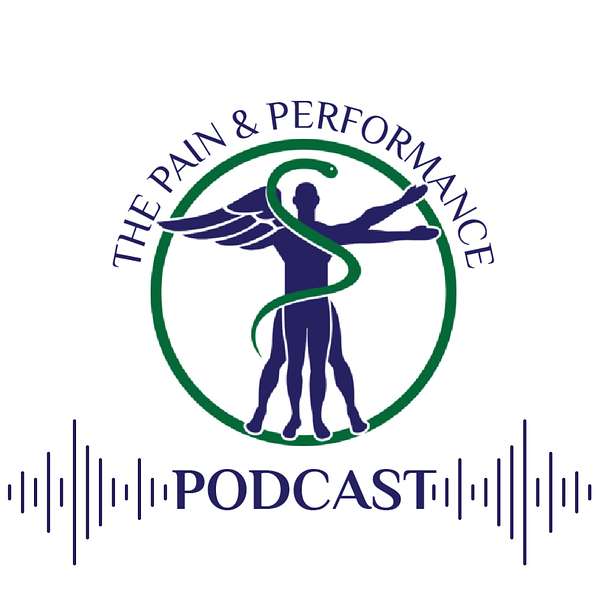
The Pain and Performance Podcast
The Pain and Performance Podcast
The Science of HRV: Practical Tips for a Healthier Life with Torkil Faero
Welcome to another episode of the Pain and Performance podcast. In this episode, I sit with Dr. Torquil Farrow and we discuss the importance of heart rate variability (HRV) as a measure of overall health and well-being. HRV is the variation between heartbeats and provides insights into the autonomic nervous system and general physiology. By tracking HRV with wearable devices, you can make informed decisions about your lifestyle choices and manage your stress levels. HRV can also be used to assess the effectiveness of health changes, such as improving sleep, diet, and exercise. Additionally, HRV can indicate the impact of factors like alcohol consumption and menstrual cycles on overall health. In this conversation, Torkil Færø and I discuss how to interpret changes in heart rate variability (HRV) and what it means for an individual's health. We explore the various factors that can affect HRV, such as stress, sleep, alcohol consumption, and exercise. We also discuss the importance of social connections and creativity in promoting overall well-being. Our conversation highlights the need to prioritize sleep, cut down on alcohol consumption, and engage in activities that promote relaxation and creativity.
Takeaways
-- Heart rate variability (HRV) is a measure of the variation between heartbeats and provides insights into overall health and well-being.
-- Wearable devices can track HRV and help individuals make informed decisions about their lifestyle choices and stress management.
-- HRV can be used to assess the effectiveness of health changes, such as improving sleep, diet, and exercise.
-- Factors like alcohol consumption and menstrual cycles can impact HRV and overall health.
-- Tracking HRV can help individuals identify patterns and make adjustments to improve their health and well-being. Changes in heart rate variability (HRV) can provide valuable insights into an individual's health and well-being.
-- Factors such as stress, sleep, alcohol consumption, and exercise can affect HRV.
-- Prioritizing sleep and getting 7-8 hours of quality sleep is crucial for overall health.
-- Reducing alcohol consumption can have a positive impact on HRV and overall well-being.
-- Engaging in activities that promote relaxation and creativity, such as art, music, or learning a new skill, can improve HRV and overall health.
-- Social connections and strong relationships are essential for promoting well-being and longevity.
Chapters
00:00 Introduction and Background
02:19 Understanding Heart Rate Variability (HRV)
09:45 Using HRV to Manage Stress and Prevent Burnout
32:08 Assessing the Impact of Lifestyle Changes with HRV
34:27 Understanding Heart Rate Variability
39:34 The Impact of HRV on Outcomes and Disease Risk
41:37 The Effect of Alcohol on HRV
50:14 The Role of Exercise in Improving HRV
52:32 Optimizing Training Based on HRV
56:19 Using HRV to Improve Performance Throughout a Season
01:02:48 The Importance of Social Connections and Creativity
01:07:16 Takeaways and Actionable Steps for Better HRV
Links:
DERRICK
TikTok:
https://www.tiktok.com/@drderrick
Instagram:
https://www.instagram.com/derrickbhines/
Youtube:
https://www.youtube.com/@DrDerrick
TORKIL
Instagram:
https://www.instagram.com/dr_torkil.md/
Website:
https://thepulsecure.com/